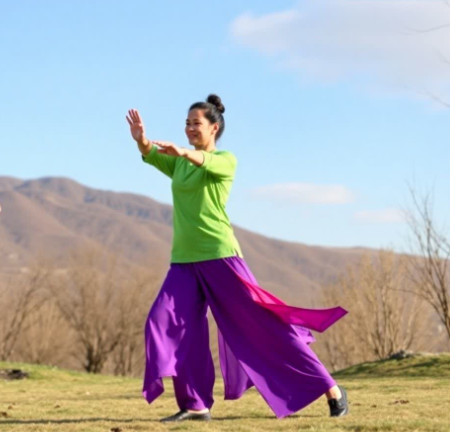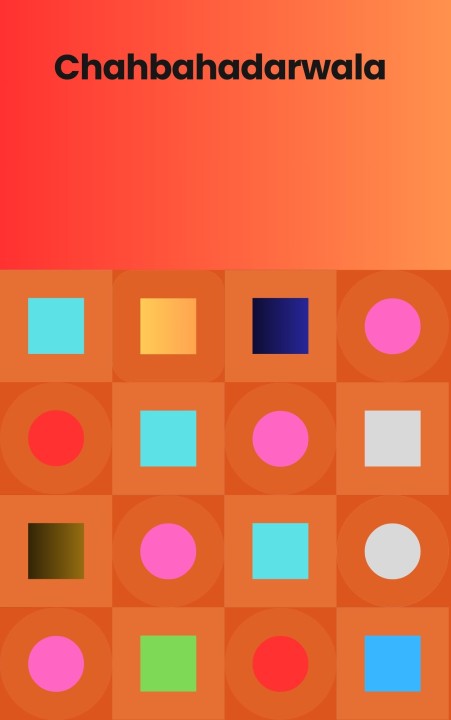Aging Smart: How Yoga, Tai Chi, and Exergames Protect Memory & Executive Function
Brain Boost at Any Age: New Study Highlights Yoga, Tai Chi, and Exergames as Top Cognitive Enhancers
(Source: Health.com, by Elizabeth Yuko)
Introduction: Unlocking Your Brain's Potential Through Movement
In the ongoing quest for optimal brain health and longevity, the role of physical activity is indisputable. While the general consensus has long been that "any exercise is good exercise" for the brain, new groundbreaking research is shedding light on specific types of movement that may offer even more profound cognitive benefits across all age groups. This large-scale review suggests that you don't necessarily need to push your physical limits to protect memory, enhance high-level thinking skills, and boost overall cognition. Instead, a focus on "mind-body" practices and interactive fitness games could be particularly potent.
A comprehensive review, initially published in The British Journal of Sports Medicine, indicates that all forms of exercise, regardless of their intensity, contribute significantly to brain health. However, the study pinpointed three distinct categories—yoga, Tai Chi, and exergames (active video games)—as showing the most substantial positive impact on various cognitive functions. Experts underscore that even short, consistent workouts within these categories can yield remarkable improvements in brain health, offering an accessible pathway to sharper minds at any stage of life.
 |
| Yoga, Tai Chi, and Exergames Protect Memory & Executive Function |
The Research Unpacked: What the Study Revealed About Brain-Boosting Exercise
To arrive at its robust conclusions, the study meticulously analyzed findings from 133 previously published reviews, encompassing a vast dataset of over 258,000 participants. This meta-review aimed to identify overarching patterns and strong evidence linking different types and intensities of exercise to cognitive outcomes.
Ben Singh, PhD, a postdoctoral researcher in population and digital health at the University of South Australia and the lead author of the study, summarized the findings: "Strong evidence that exercise improves general cognition, memory, and executive function across all age groups." This sweeping statement reinforces the fundamental connection between physical activity and a healthy brain.
Dr. Singh specifically noted that the benefits were particularly pronounced in certain demographics, including children, adolescents, and individuals diagnosed with attention-deficit/hyperactivity disorder (ADHD). This suggests that exercise acts as a broad-spectrum cognitive enhancer, offering support to developing brains and those facing specific neurological challenges.
 | |
|
Beyond the general positive correlation, the research delved into specific factors influencing brain health benefits.
· Intensity Matters (But Not Always How You Think): Counterintuitively for some, the study found that low- to moderate-intensity exercise had a slightly stronger association with brain health improvements compared to vigorous or high-intensity exercise. This is a crucial takeaway, as it makes cognitive benefits accessible to a wider population, including older adults or those with physical limitations. Moderate intensity proved most effective for memory and executive function (problem-solving, reasoning), while low-intensity exercise showed the greatest benefit for general cognition.
· Intervention Time (Consistency is Key): The duration of an exercise routine also played a role. Committing to an exercise regimen for even a relatively short period, such as one to three months, yielded noticeable benefits, especially for general cognition. However, the study also indicated that longer, more sustained interventions were beneficial for other specific aspects of brain health, suggesting that ongoing engagement maximizes results. This highlights the importance of consistency over sporadic, intense bursts.
· Activity Type (Mind-Body Connection is Potent): This is where the study's most unique insights emerge. While all exercise is good, specific activities show superior cognitive benefits. Exergames—video games requiring physical movement—delivered the most significant cognitive gains, particularly for memory. Following closely were mind-body activities such as yoga and Tai Chi, which were also found to be particularly effective for memory, likely due to their demand for remembering coordinated movement sequences.
Dr. Singh concluded, "These findings reinforce the importance of incorporating even light physical activity into daily life as part of a long-term strategy for maintaining brain health." This emphasizes that integrating movement doesn't require drastic lifestyle overhauls; consistent, even low-intensity, activity can make a significant difference.
The Best Exercises for Brain Health and How to Incorporate Them
While Dr. Singh acknowledges that the study serves as a "jumping off point," given variations in evidence quality and exercise protocols across the reviewed reports, and a focus primarily on short-term benefits, it unequivocally adds to the mounting evidence that moving more is good for your brain. And for those seeking particularly effective avenues, yoga, Tai Chi, and exergames stand out.
 | |
|
Here's a deeper dive into why these three types of exercise are so beneficial for cognitive function and practical advice on how to integrate them into your routine.
1. Yoga: The Harmonizer of Mind and Body
Yoga is an ancient practice renowned for its holistic approach, seamlessly blending physical postures (asanas), controlled breathing techniques (pranayama), and meditation. As Anna Emanuel, MD, an integrative and functional medicine physician, yoga teacher, and founder of Love. Life Medical points out, this unique combination creates a distinctive cognitive engagement.
Dr. Singh explains that yoga's brain-boosting power stems from several mechanisms.
· Stress Reduction: Yoga is highly effective at reducing stress. Chronic stress can negatively impact the hippocampus, the brain's critical center for memory formation and consolidation. By mitigating stress, yoga indirectly supports hippocampal function.
· Inflammation Reduction: It also helps to lower systemic inflammation, which is known to be detrimental to overall brain health and linked to cognitive decline.
· Prefrontal Cortex Strengthening: The practice actively strengthens the prefrontal cortex, the brain region vital for executive functions such as decision-making, planning, problem-solving, and emotional regulation. The focus required to hold postures and coordinate breath engages this area.
· Enhanced Neuroplasticity: The intricate coordination, balance, and focus demanded by yoga postures promote neuroplasticity, the brain's ability to reorganize itself by forming new neural connections.
How to get started: Michael Genovese, MD, JD, a physician and chief medical advisor at Ascendant New York, suggests beginning with short sessions—perhaps 20 to 30 minutes, two or three times a week. Styles like Hatha or Vinyasa yoga, which combine gentle movement with breathwork, are excellent starting points. To amplify cognitive benefits, Dr. Singh recommends ending each session with a period of meditation or a relaxation technique and considering structured yoga programs specifically designed for brain health or mindfulness.
2. Tai Chi: The "Moving Meditation" for Cognitive Clarity
Tai Chi, a traditional Chinese martial art, is often described as "moving meditation" due to its characteristic slow, fluid movements combined with deep breathing. As Dr. Emanuel explains, it's an intentional practice that aims to balance energy throughout the body, cultivating calmness and focus.
Sanam Hafeez, PhD, a neuropsychologist and director of Comprehend the Mind, highlights why Tai Chi is particularly effective for cognitive health: it "activates brain regions responsible for memory and motor functions" through its slow, purposeful movements that inherently connect the body and mind. The deliberate sequencing of movements demands significant mental engagement.
Dr. Genovese adds that the necessity to "remember a specific set of movements" within Tai Chi forms provides a direct and continuous challenge to memory. Furthermore, like yoga, Tai Chi's emphasis on mindfulness and controlled breathing significantly "lowers stress, which usually means better focus and mental clarity." Its meditative quality fosters present-moment awareness, sharpening attentional control.
How to get started: For optimal cognitive benefits, Dr. Singh advises practicing Tai Chi at least three times per week for 20 to 60 minutes per session, ideally within a group setting, which can add social and motivational benefits. Engaging in structured routines, such as the Yang or Chen styles, which require memorization and precise execution, can be particularly effective. Concentrating on controlled breathing and mindfulness throughout the practice further amplifies cognitive engagement.
3. Exergames: The Fun and Interactive Brain Workout
Exergames represent a modern fusion of physical activity and cognitive stimulation. As Dr. Singh explains, these are video games that require physical movement to interact with the game, making exercise both engaging and mentally stimulating. They leverage the immersive and rewarding nature of gaming to encourage physical activity.
Examples of popular exergames include:
· Nintendo Wii Sports: Featuring games like tennis and boxing that require body movements.
· Dance Dance Revolution: A rhythm-based game where players step on pads in response to on-screen arrows.
· Virtual Reality (VR) Fitness Games: Such as Beat Saber (rhythm-based light saber game), Supernatural (immersive fitness experience), and FitXR (boxing and dance workouts in VR).
"You are reacting quickly, following patterns, and solving challenges—all while physically active," Dr. Genovese points out. This unique blend of physical exertion with cognitive demands (like rapid decision-making, pattern recognition, and problem-solving) helps to "sharpen attention, coordination, and memory." The multitasking inherent in exergames directly engages multiple brain regions simultaneously.
Moreover, the highly interactive and gamified nature of exergames is a powerful motivator. This engaging quality "keeps you motivated," Dr. Singh notes, leading to more consistent participation, which in turn translates into sustained cognitive benefits over time.
How to get started: To maximize cognitive benefits, Dr. Singh suggests choosing exergames that involve complex movements and strategic decision-making, such as rhythm-based or sports simulation games. Play for at least 20 to 30 minutes, three to five times per week. The key, as Dr. Genovese wisely advises, is to pick games you genuinely find fun. "The more you enjoy it, the more likely you are to stick with it—and that is where the real benefits come in."
Conclusion: A Prescription for Lifelong Cognitive Vitality
This new research unequivocally strengthens the case for exercise as a cornerstone of brain health at any age. It provides encouraging news that even moderate or low-intensity activities can yield significant cognitive benefits, making brain health accessible to everyone. By strategically incorporating mind-body practices like yoga and Tai Chi, or embracing the interactive fun of exergames, individuals can actively work to protect their memory, sharpen their executive functions, and boost overall cognitive vitality. In a world increasingly demanding mental agility, these types of exercises offer a powerful, enjoyable, and scientifically backed prescription for lifelong brain health.
Labels: and Exergames as Top Cognitive Enhancers, New Study Highlights Yoga, Tai Chi


1 Comments:
It's great to see a spotlight on how mindful movement can genuinely protect our cognitive abilities as we get older.
Post a Comment
If you have any doubt, please let me know
Subscribe to Post Comments [Atom]
<< Home